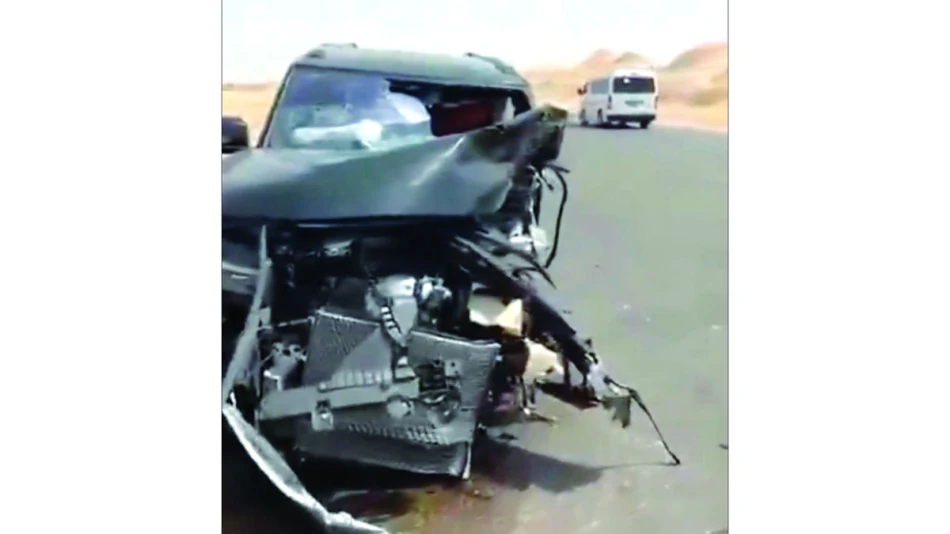
Elderly Citizen Tragically Killed in Road Accident
Tragic Cross-Border Accident Claims Lives of UAE and Omani Citizens on Highway
A fatal head-on collision on an Omani highway has claimed the lives of two men from both sides of the UAE-Oman border, highlighting the human cost of regional travel and the close ties that bind Gulf families across national boundaries. The accident, which was captured on video and widely shared on social media, has sparked an outpouring of grief from communities in both countries.
The Fatal Collision
Mohammed Faraj Al-Tamimi, a 70-year-old UAE citizen, died in the severe traffic accident that occurred on a highway in Oman last Saturday. The collision also claimed the life of an Omani driver in the other vehicle involved in the head-on crash between two SUVs.
Al-Tamimi's wife and daughter, who were passengers in his vehicle, sustained various injuries but are now in stable condition. However, his wife's medical condition prevents her from air travel, requiring extended care in Oman before she can return home.
Family Travel Turns Tragic
The family was traveling in convoy to Oman, with another daughter, her husband, and their child following in a separate vehicle. This second family unit escaped the collision and will remain with the injured mother until her full recovery.
A Life of Resilience and Patriotism
Al-Tamimi's story reflects the resilience often celebrated in Gulf culture. He had previously battled cancer since his initial diagnosis in 1989, achieving remission before facing a recent recurrence. Despite his health challenges, he remained active and engaged with his community.
His patriotic spirit was notably demonstrated when he and his wife hung a 25-meter UAE flag during one of his cancer treatment periods, coinciding with both UAE National Day and their wedding anniversary—a gesture that embodied the personal-political connection many Gulf citizens feel toward their nations.
Cross-Border Bonds and Regional Integration
The tragedy underscores the deep integration between UAE and Omani societies, where families routinely travel across borders for leisure, business, and family visits. The seamless movement between these Gulf Cooperation Council nations has created shared experiences and mutual support systems that transcend political boundaries.
The widespread social media response, with users from both countries offering condolences through platforms like X (formerly Twitter), demonstrates how digital connectivity amplifies the sense of shared community across the region.
Funeral Arrangements Reflect Cultural Traditions
The family has arranged for Al-Tamimi's burial in Dubai's Al-Qusais Cemetery, with separate mourning councils for men and women following traditional Gulf customs. His son, Sabri Al-Tamimi, described his father as "a noble man who devoted himself to serving his country and family."
The logistics of repatriating the deceased while caring for injured family members abroad illustrates the complex challenges Gulf families face during cross-border emergencies, despite generally strong diplomatic and logistical cooperation between GCC nations.
This incident serves as a sobering reminder of road safety challenges across the Gulf region, where high-speed highways connect increasingly mobile populations but also present significant risks that affect families and communities on both sides of every border.
Most Viewed News

 Sara Khaled
Sara Khaled






